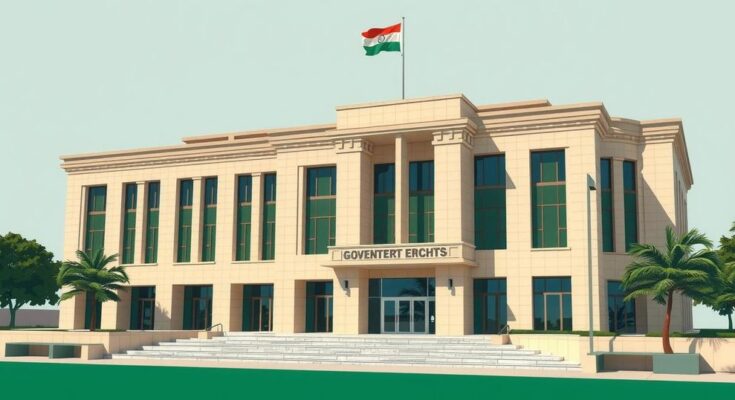South Sudan’s President Salva Kiir dismissed three ministers, including the Minister of Justice, the Minister of General Education, and the Minister of Trade and Industry, without providing reasons. This Cabinet reshuffle reflects ongoing governance issues in the country, which has faced significant political challenges since gaining independence in 2011. The president retains extensive authority over governmental appointments, highlighting the complexities arising from the peace deal established in 2018.
On Monday, President Salva Kiir Mayardit of South Sudan executed a Cabinet reshuffle, dismissing three ministers. This move was broadcasted on the state-owned South Sudan Broadcasting Corporation (SSBC). Among those relieved of their duties was Ruben Madol Arol, the Minister of Justice and Constitutional Affairs; he has been succeeded by Wek Mamer Kuol.
Additionally, Awut Deng Acuil, the Minister of General Education and Instruction, was also dismissed, with her replacement being Kuyok Abol Kuyok. Furthermore, Joseph Mum Majak, who served as the Minister of Trade and Industry, was removed, and Atong Kuol Manyang, the former deputy governor of Jonglei State, previously dismissed in another decree, has taken over his position.
The specifics behind these dismissals were not disclosed by President Kiir. Since gaining independence in 2011 after separating from Sudan, South Sudan has faced significant political turbulence, including a civil war arising from the fallout between Kiir and his deputy, Riek Machar. The ongoing issues surrounding the 2018 power-sharing agreement highlight the complexities of governance in the region.
According to the existing peace deal, President Kiir retains the authority to appoint or dismiss government officials at both national and state levels. However, any appointments or dismissals concerning individuals from opposing political parties require the consent of those parties’ leaders.
President Salva Kiir’s recent Cabinet reshuffle, which involved the dismissal of three ministers, underscores the continuing instability in South Sudan’s political landscape. Despite being the world’s newest nation, South Sudan has been marred by conflict and governance challenges since its independence. The president’s unilateral decision-making power regarding governmental appointments continues to be a fundamental aspect of South Sudan’s political framework, particularly amid the complexities of the 2018 peace agreement.
Original Source: www.aa.com.tr




